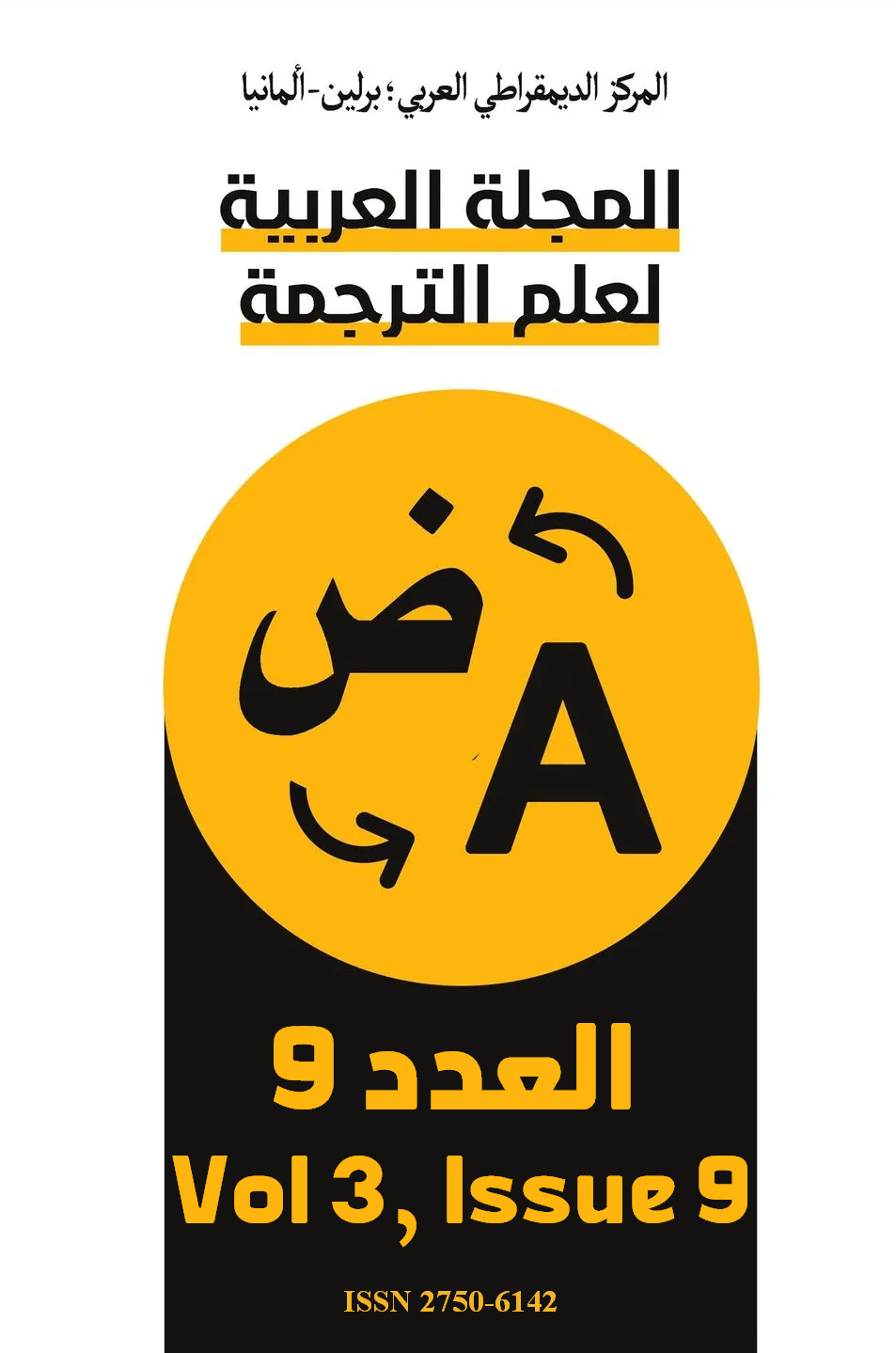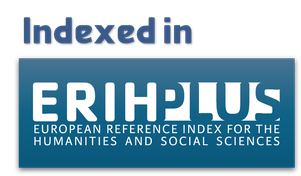What Is Irony? An Exploration of Multiple Perspectives on the Concept
DOI:
https://doi.org/10.63939/AJTS.tzf4wv96Keywords:
Irony, Laughter, Humor, Sociology, PhilosophyAbstract
This paper explores various philosophical, sociological, and critical perspectives on irony as a research subject. This study aims to bridge the knowledge gap in the existing literature on the study of irony. Numerous views have emerged to deconstruct this complex expression and to understand its essence and functions within different social and cultural contexts. Some perspectives perceive irony as a liberation tool, offering individuals a significant space to critique social systems and prevailing ideologies. Conversely, others see it as a false ideology, destroying morals and taste. Some scholars view irony as a mechanism for domination and superiority, or even as a means of demeaning opponents. While some consider it excessive entertainment, opposing seriousness, others find it a powerful instrument for social reform. In addition to discussing these various opinions, this paper also addresses the distinction between irony and other similar expressions, such as laughter, humor, jest, teasing, and joking.
Downloads
References
إبراهيم، زكرياء. (2012). سيكولوجية الفكاهة والضحك. القاهرة: مكتبة مصر
ابن منظور. (1981). لسان العرب. القاهرة: دار المعارف
أبي الحسين، أحمد بن زكرياء. (1979). معجم مقاييس اللغة، ج3. بيروت: دار الفكر للطباعة والنشر والتوزيع
أبوزيد، أحمد. (1982). الفكاهة والضحك. مجلة عالم الفكر، 13(3)، 32-46
شايب، أحمد. (2008). ضحك في الأدب الأندلسي: دراسة في وظائف الهزل وأنواعه وطرق اشتغاله (ط2.). الرباط: دار أبي رقراق للطباعة والنشر
أرسطو. (1924). علم الأخلاق إلى نيقوماخوس (ترجمة أحمد السيد). القاهرة: مطبعة دار الكتب المصرية
المعجم الوسيط. (2004). المعجم الوسيط. منشورات معجم اللغة العربية
كانط، إيمانويل. (2005). نقد ملكة الحكم (ترجمة سعيد الغانمي). بيروت: المنظمة العربية للترجمة
هوبز، توماس. (2011). اللفياثان الأصول الطبيعية والسياسية لسلطة الدولة (ترجمة ديانا حبيب). أبو ظبي: هيئة أبو ظبي للثقافة والتراث
فلوري، سينتيا. (2017). نهاية الشجاعة: من أجل استعادة فضيلة ديمقراطية(ترجمة عبد النبي كوارة). بيروت: المركز العربي للأبحاث ودراسة السياسات
شادلي، المصطفى. (2014). الهزل والسخرية في التراث الشفاهي. الرباط: منشورات كلية الآداب والعلوم الإنسانية
شاكر، عبد الحميد. (2003). الفكاهة والضحك: رؤية جديدة. الكويت: المجلس الوطني للثقافة والفنون والآداب
العقاد، عباس محمود. (2013). جحا الضاحك والمضحك. القاهرة: مؤسسة هنداوي للتعليم والثقافة
الكدالي، عبد الله. (2018). الهزل والسخرية: من منظور فلسفات الأخلاق. الدار البيضاء: المركز الثقافي للكتاب للنشر والتوزيع
شقير، محمد. (2009). السخرية والسلطة بالمغرب من المأسسة إلى التجريم وما بعدها. الدار البيضاء: إفريقيا الشرق
باخثين، ميخائيل، وآخرون. (2017). الكرنفال في الثقافة الشعبية (ترجمة خالدة حامد). ميلانو: منشورات المتوسط
الضمور، نزار عبد الله. (2012). السخرية والفكاهة في النثر العباسي. عمان: دار حامد
برغسون، هنري. (1981). الضحك (ترجمة إسماعيل ملوكي). المؤسسة الجامعية للدراسة والنشر والتوزيع
Uwanamodo, D. (2019). Sociology of laughter and humor. The Rice Examiner, 2(1), 149-167
Oxford English Dictionary. (2024, September). Irony (n.), sense 1.a. In Oxford English Dictionary. https://bit.ly/4gQm7EM
Muecke, D. (2021). The compass of irony. Routledge DOI: https://doi.org/10.4324/9781003129905
Blondel, É. (1988). Le risible et le dérisoire. Presses Universitaires de France DOI: https://doi.org/10.3917/puf.blond.1988.01
Ferris, D. (1972). Humor and creativity: Research and theory. The Journal of Creative Behavior, 6(2), 75-79 DOI: https://doi.org/10.1002/j.2162-6057.1972.tb00913.x
Spencer, H. (1875). The physiology of laughter. In H. Spencer, Illustrations of universal progress: A series of discussions (pp. 194-209). D Appleton & Company. https://doi.org/10.1037/12203-004 DOI: https://doi.org/10.1037/12203-004
Cotte, J. (2012). L'humour et le rire comme outils politiques d'émancipation? Université du Québec à Montréal
Hutcheon, L. (1992). The complex functions of irony. Revista Canadiense de Estudios Hispánicos, 16(2), 219–234.
de Man, P., & Warminski, A. (1997). Aesthetic Ideology. Journal of Aesthetics and Art Criticism, 55(4), 443-445 DOI: https://doi.org/10.2307/430942
Adorno, T. (2005). Minima moralia: Reflections from damaged life. Verso
Brennan, T. (2014). The case against irony. The Journal of Commonwealth Literature, 49(3), 379-394 DOI: https://doi.org/10.1177/0021989414533689
---
Romanization of Arabic Bibliography
---
Ibrahim, Z. (2012). Sīkūlūjiyyat al-fukāha wa al-ḍaḥk [The Psychology of Humor and Laughter]. Cairo: Egypt Library
Ibn Manẓūr. (1981). Lisān al-ʿArab [The Tongue of the Arabs]. Cairo: House of Knowledge
Abū al-Ḥusayn, A. (1979). Muʿjam Maqāyīs al-Lugha [Dictionary of Language Measures]. Beirut: House of Thought for Printing, Publishing, and Distribution
Abū Zaid, A. (1982). Al-fukāha wa al-ḍaḥk [Humor and Laughter]. Majallat ʿĀlam al-Fikr (World of Thought Journal), 13(3), 32-46
Shayeb, A. (2008). Ḍaḥk fī al-adab al-Andalusī: Dirāsa fī waẓāʾif al-hazl wa-anwāʿihi wa-ṭuruq ishtighālihi [Laughter in Andalusian Literature: A Study of the Functions, Types, and Methods of Humor] (2nd Ed.). Rabat: Abu Raqraq Publishing House
Aristotle. (1924). ʿIlm al-akhlāq ilā Nīqūmākhūs [Nicomachean Ethics] (A, El-Sayed. Arabic Trans). Cairo: Egyptian National Library Press
Kant, I. (2005). Naqd Malkat al-Ḥukm [Critique of Judgment] (S, Al-Ghanimi. Arabic Trans). Beirut: Arab Organization for Translation
Hobbes, T. (2011). Al-Livyāthān: Al-uṣūl al-ṭabīʿiyya wa-al-siyāsiyya li-sulṭat al-dawla [Leviathan: The Natural and Political Foundations of State Authority] (D, Habib. Arabic Trans). Abu Dhabi: Abu Dhabi Authority for Culture and Heritage
Fleury, C. (2017). Nihāyat al-shajāʿa: Min ajl istiʿādat faḍīla dīmuqrāṭiyya [The End of Courage: For the Recovery of a Democratic Virtue] (A, Kowara. Arabic Trans). Beirut: Arab Center for Research and Policy Studies
Al-Mustafa, S. (2014). Al-hazl wa-al-sukhriyya fī al-turāth al-shafahī [Humor and Satire in Oral Heritage]. Rabat: Publications of the Faculty of Arts and Humanities
Shaker, A. (2003). Al-fukāha wa-al-ḍaḥk: Ruʾya jadīda [Humor and Laughter: A New Vision]. Kuwait: National Council for Culture, Arts, and Letters
Al-Aqqad, A. M. (2013). Juḥā al-ḍāḥik wa-al-muḍḥik [Juha the Laugher and the Laughable]. Cairo: Hindawi Foundation for Education and Culture
Al-Kaddali, A. (2018). Al-hazl wa-al-sukhriyya: Min manẓūr falsafāt al-akhlāq [Humor and Satire: From the Perspective of Moral Philosophies]. Casablanca: Cultural Center for Publishing and Distribution
Shuqair, M. (2009). Al-sukhriyya wa-al-sulṭa bil-Maghrib min al-maʾsasa ilā al-tajrīm wa-mā baʿdahā [Satire and Authority in Morocco: From Institutionalization to Criminalization and Beyond]. Casablanca: Africa East Publishing
Bakhtin, M., et al. (2017). Al-karnaval fī al-thaqāfa al-shaʿbiyya [The Carnival in Popular Culture] (K, Hamid. Arabic Trans). Milan: Al-Mutawassit Publications
Al-Damour, N. (2012). Al-sukhriyya wa-al-fukāha fī al-nathr al-ʿAbbāsī [Satire and Humor in Abbasid Prose]. Amman: Hamed Publishing House
Bergson, H. (1981). Al-Ḍaḥk [Laughter] (I, Malouki. Arabic Trans). University Institution for Study, Publishing, and Distribution
Downloads
Published
Issue
Section
License

This work is licensed under a Creative Commons Attribution-NonCommercial 4.0 International License.
As an open-access the journal follows the CC BY-NC 4.0 Attribution-NonCommercial 4.0 International which states that:
- you are free to:
- Share— copy and redistribute the material in any medium or format.
- Adapt— remix, transform, and build upon the material.
- Under the following terms:
- Attribution— You must give appropriate credit, provide a link to the license, and indicate if changes were made. You may do so in any reasonable manner, but not in any way that suggests the licensor endorses you or your use.
- NonCommercial — You may not use the material for commercial purposes.
- No additional restrictions — You may not apply legal terms or technological measures that legally restrict others from doing anything the license permits.












